What is a Plastic Cow?
In India, one of the most striking images is the cow wandering on the road. In cities, towns and villages numerous cows and bulls sit or wander peacefully, settling down to chew the cud. It gives the impression of a society living together peacefully with animals. The holy cow, the Mother of India is revered by all and, in most states, is not allowed to be slaughtered.
India has an open garbage system, which means open garbage bins on the roads overflowing with stinking waste. Dogs, monkeys, pigs, rats and cows eat whatever they can find to survive. The numbers of stray dogs, rats and monkeys are equal to the amount of garbage on which they feed and multiply.
In cities and towns, large numbers of cows on the roads eat from garbage bins, foraging for fruit, vegetable leftovers, anything edible and anything smelling like food.
Since plastic bags have invaded our lives, almost all garbage and food waste is disposed in plastic bags. These bags spill out either on the road or from municipality dustbins. Since the plastic bags are knotted at the mouth, cows, unable to undo the knot, eat food leftovers including the plastic. Slowly, over time, they build up a huge amount of plastic inside their stomachs. It gets entangled with different materials and it becomes hard like cement inside their rumens, which is the first belly of the cow.
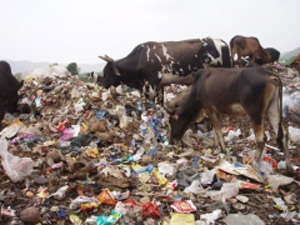
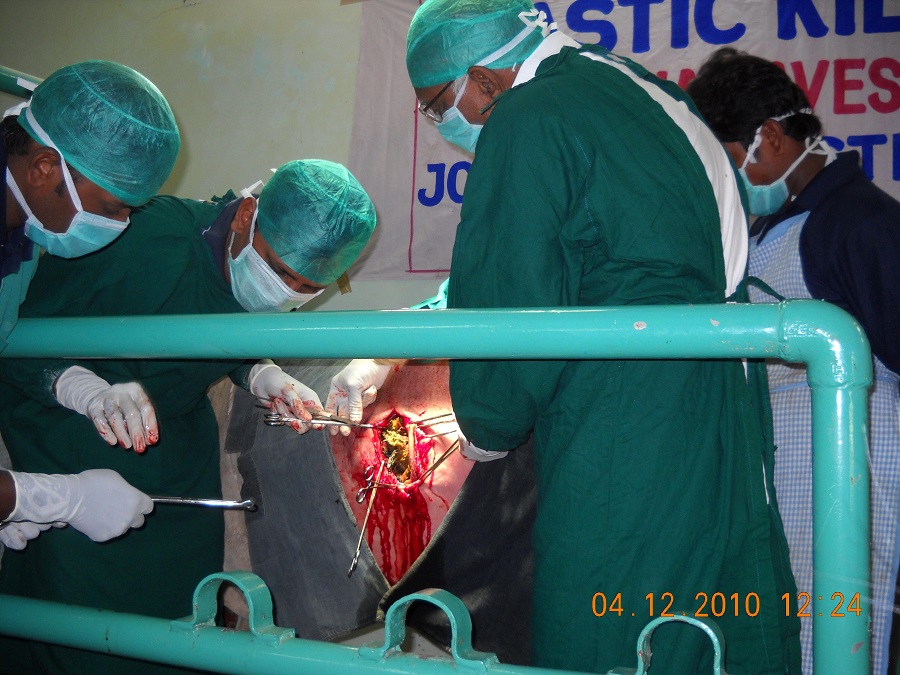
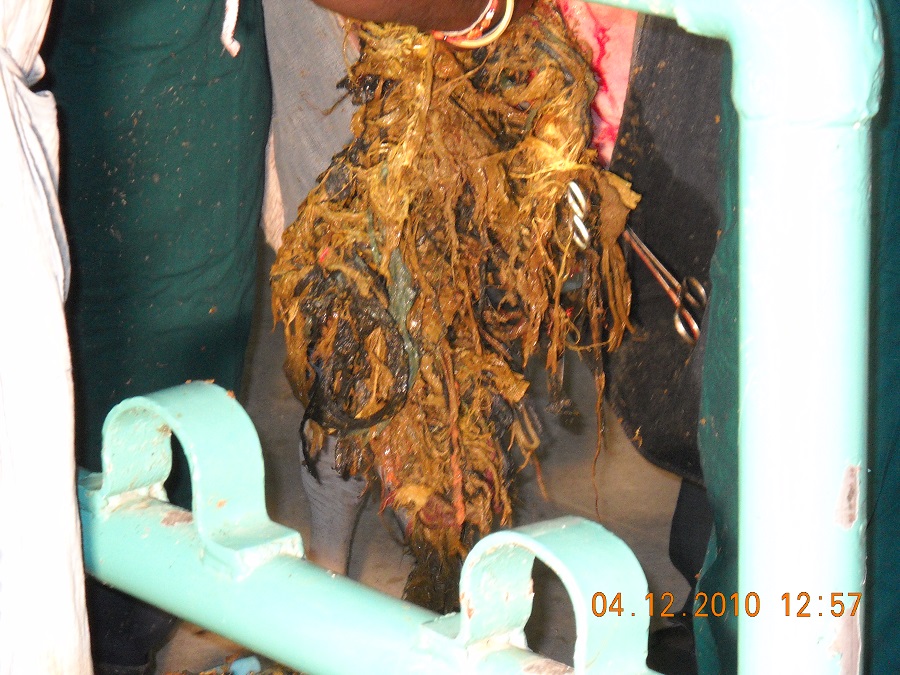
The Cow Reduced to a Dying Scavenger
There have been anti-plastic campaigns in India. At present, there is a ban on plastic bags up to 40 microns in many states. But no one has focused on the hazardous effects of plastic on the animals and their right to live a life free of plastics. It is the basic right of the cow to live and graze on natural food and not have to eat garbage tied up in plastic bags. This is an acute form of cruelty. The cow has become a scavenger.
The Rumenotomy, the surgical removal of plastic up to 70 kg from the cow.
It has been a life changing experience for all of us who witnessed the surgery and the removal of plastics and other waste items from the rumen. We are horrified by the suffering of animals caused by the garbage system and the problem of letting cows and bulls loose on the road.
The Unobserved Disaster – The Effect of Plastic on Wildlife
Along India’s rivers, there are thousands of temples, villages and towns, where untreated sewage and garbage flows in the water. Hundreds of kilometres downstream, garbage and plastic are deposited at places where wildlife feeds and drinks. Many animals die a painful and unobserved death. An elephant was found dead with 750 kg plastic inside its stomach. Turtles, fish, birds, wild pigs, no animal can escape!!
Performing rumenotomies is not the answer to the plastic cow, only a total ban on plastics and removal of animals from the garbage-dump will solve the problems. We continue the surgeries as it is a life-saving procedure for the individual animal. As a pilot project, funded by The Kindness Trust, Australia, it gives us more information about the problems, the surgeries and the rate of survival.
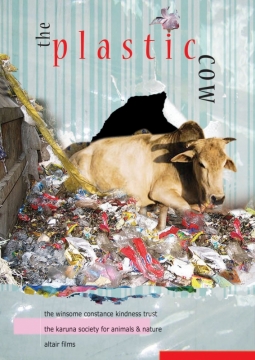
Public Interest Litigation
The Plastic Cow activists filed a case in the Supreme Court of Delhi, for animal rights and a complete ban of plastic bags.
M/s VSPCA, Vishakapatnam, M/s Karuna Society for Animals and Nature, Puttaparthi, and three individuals Pradeep Nath, Clementien Pauws and Rukmini Sekhar are the litigants in this case supported by Senior Lawyer for Supreme Court Shyam Divan and assisted by Pratap Venugopal.
On May 7, 2012, the Supreme Court announced in its first hearing that it may be considering a total ban on plastic bags. This made huge national and international news.
Read more about the petition here.
Download the petition Plastic Cow Petition dated 7.2.2012
The latest order from the Supreme court in July 2016 is available here.
Excerpts from the Economic Times of India:
“All of us are watching how our lakes, ponds and urban sewerage systems are getting choked by plastic bags. We want to expand the scope of this petition. Unless we examine a total ban on plastic bags or put in place a system for manufacturers mandating them to collect back all plastic bags, the next generation will be threatened with something more serious than the atom bomb,” Justices Singhvi and Mukhopadhaya said.
Appearing for NGOs Karuna Society for Animals and Nature and Visakha Society for Protection and Care of Animals, senior advocate Shyam Divan said the problem was more acute in urban areas where people had a habit of disposing leftover food in plastic bags in municipal bins.
“Apart from the plastic completely choking the digestive system of the cow and causing excruciating pain to the animal, plastic residues enter the human food chain through dairy and animal products,” he added.
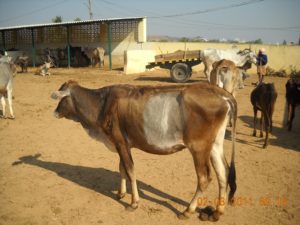
What should YOU do?
NEVER collect your vegatable peelings in a plastic bag with a knot and put them in the garbage.
When you go shopping, bring your own (plastic or cloth) bag, never depend on plastic bags from the seller, REFUSE THE BAGS THAT ARE BANNED, below 40 micron, reuse the plastic bags you already have till they are worn out and then collect them in a separate bag and give them for recycling.
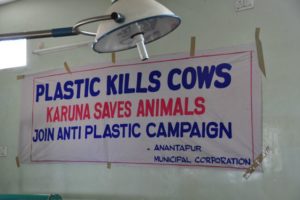
If you are really touched by the film and the suffering of the cow, reconsider your food habits. Nowadays the milk and meat industry are closely connected and without slaughter it is no longer possible to obtain milk. Even by being a vegetarian you contribute to the suffering you have just witnessed.